Managing finances is a key part of running a successful business, and having reliable accounting and bookkeeping services near me can make all the difference. Whether you’re just starting out or looking to streamline your existing processes, finding the right bookkeeping service is crucial. This guide will help you understand what to look for, how to assess your needs, and the best ways to maximize the benefits of your bookkeeping service.
Key Takeaways
- Identify your specific bookkeeping needs based on your business size and complexity.
- Understand the cost structures of different bookkeeping services to find the best fit for your budget.
- Consider both local and online bookkeeping options to see which aligns better with your business operations.
Understanding Your Bookkeeping Needs

Okay, let’s get real about what you actually need from a bookkeeping service. It’s not one-size-fits-all, and figuring this out upfront saves you a ton of headaches (and money) later. Think of it like this: you wouldn’t buy a monster truck to drive around a tiny city, right? Same deal here.
Identifying Your Business Size and Complexity
First things first, how big are we talking? Are you a solo operation, a small startup, or a rapidly growing company? The size and complexity of your business directly impact your bookkeeping needs. A freelancer with a handful of clients has vastly different requirements than a business juggling multiple revenue streams, employees, and inventory. Knowing where you stand is half the battle.
Consider these points:
- Revenue Volume: Higher revenue generally means more transactions to track.
- Number of Employees: Payroll adds a whole new layer of complexity.
- Inventory Management: If you sell physical products, inventory tracking is crucial.
Determining Essential Services
Alright, time to get specific. What services do you really need? Are we talking basic income and expense tracking, or do you need help with invoicing, payroll, tax preparation, and financial reporting? Maybe you need someone to manage your accounts receivable collection too. Make a list of the tasks you dread or simply don’t have time for. That’s your starting point.
Here’s a quick checklist to get you thinking:
- Daily transaction recording
- Bank reconciliation
- Invoice creation and management
- Payroll processing
- Tax preparation and filing
- Financial statement preparation
Assessing Frequency of Bookkeeping Tasks
How often do you need your books updated? Daily? Weekly? Monthly? Quarterly? The frequency depends on your business activity and how closely you want to monitor your finances. More frequent updates give you a better handle on your cash flow and can help you catch errors early. Less frequent updates might be fine if your business is relatively simple and stable. Think about how often you want to review your business budget and make decisions based on your financials.
It’s easy to fall behind on bookkeeping, especially when you’re busy running your business. But trust me, staying on top of it is worth the effort. It’s like flossing – nobody wants to do it, but your teeth (and your business) will thank you later.
Cost Considerations for Bookkeeping Services

Alright, let’s talk money. Getting your books in order is super important, but nobody wants to break the bank doing it. So, how do you figure out what’s a fair price and what’s a rip-off? Let’s break it down.
Understanding Pricing Models
Bookkeepers aren’t all charging the same way, and that’s a good thing! You’ve got options, and understanding them is key. Some go by the hour, others offer a flat monthly fee, and some even have packages. The trick is knowing what you’re actually paying for.
- Hourly rates are pretty straightforward. You pay for the time they spend working on your stuff. This can be great if your needs vary a lot month to month.
- Fixed monthly fees give you predictability. You know exactly what you’ll pay each month, which can help with budgeting. But make sure you know what’s included!
- Packages can be a sweet deal if they align with what you need. Just watch out for paying for stuff you don’t actually use.
It’s like ordering food. Do you want a burger a la carte, a combo meal, or the all-you-can-eat buffet? Each has its pros and cons, depending on how hungry you are (or, in this case, how complex your books are).
Balancing Cost and Quality
Okay, so you don’t want to spend a fortune, but you also don’t want some fly-by-night operation messing with your financials. It’s a balancing act. Think of it like this: you get what you pay for, but the most expensive option isn’t always the best.
Here’s what to consider:
- Experience: How long have they been doing this? A newbie might be cheaper, but an experienced bookkeeper has seen it all.
- References: Talk to other businesses they’ve worked with. Are they happy?
- Services: Do they just crunch numbers, or do they offer advice and insights? That extra brainpower can be worth the cost.
Exploring Affordable Options
So, you’re on a budget? No sweat! There are definitely ways to get quality bookkeeping without emptying your wallet. One way is to look into monthly bookkeeping services that offer a range of plans.
- DIY with Software: There are tons of user-friendly accounting software options out there. It takes time and effort, but it can save you a bundle. Plus, you’ll learn a lot about your business’s finances.
- Virtual Bookkeepers: These folks work remotely, which often means lower overhead and lower prices. Just make sure they’re legit and have good reviews.
- Negotiate: Don’t be afraid to haggle! Especially if you’re a small business, some bookkeepers are willing to work with you on price. It never hurts to ask.
| Option | Monthly Cost (Estimate) | Pros | Cons |
|---|---|---|---|
| DIY Software | $10 – $50 | Cheapest, full control, learn your finances | Time-consuming, steep learning curve if you’re not an accountant |
| Virtual Bookkeeper | $100 – $500 | More affordable than local, convenient, often specialized | Less personal interaction, need to verify credentials |
| Local Bookkeeper | $300+ | Face-to-face meetings, understand local regulations, personal touch | Can be more expensive, limited availability |
Choosing Between Local and Online Services
Okay, so you’re at the point where you’re trying to figure out where to get your bookkeeping done. Do you go with someone local, or embrace the digital age and find an online service? Both have their ups and downs, so let’s break it down.
The Benefits of Local Bookkeepers
There’s something to be said for being able to sit down face-to-face with someone. With a local bookkeeper, you get that personal touch. You can pop into their office, hash things out in person, and build a real relationship. This can be especially comforting if you’re not super comfortable with tech or just prefer a more traditional approach. Plus, they’re likely familiar with local tax laws and regulations, which can be a huge plus.
- Face-to-face meetings for personalized service.
- Familiarity with local tax laws and regulations.
- Easier to build a long-term relationship.
Having a local bookkeeper can feel like having another member of your team, someone who really understands your business and your community.
The Convenience of Online Services
On the flip side, online bookkeeping services are all about convenience. You can upload documents, review reports, and communicate with your bookkeeper from anywhere with an internet connection. This is a game-changer if you’re always on the go or have a remote team. Plus, online bookkeeping often comes with slick software integrations and can be more affordable than traditional options.
- Access your financial data from anywhere.
- Often more affordable due to lower overhead costs.
- Seamless integration with accounting software like QuickBooks or Xero.
Making the Right Choice for Your Business
So, how do you decide? It really boils down to your priorities and comfort level. If you value personal interaction and local expertise, a local bookkeeper might be the way to go. If you’re all about convenience, cost savings, and tech-savviness, an online service could be a better fit. Consider what’s most important for your business and choose accordingly. Think about how often you want to meet in person, how comfortable you are with technology, and what your budget looks like. Don’t be afraid to shop around and compare different options before making a decision. You can also look into bookkeeping journals to get a better understanding of the process.
Maximizing the Benefits of Your Bookkeeping Service
So, you’ve got a bookkeeper. Awesome! But simply having one isn’t enough. You need to make sure you’re actually getting the most bang for your buck. Think of it like having a gym membership – it’s only useful if you actually go and use the equipment. Let’s talk about how to make your bookkeeping service work for you.
Integrating Bookkeeping with Business Strategy
Bookkeeping isn’t just about crunching numbers; it’s about weaving those numbers into the very fabric of your business strategy. Seriously, think of your bookkeeper as more than just someone who balances the books; consider them a strategic partner. They’re sitting on a goldmine of financial data that can help you make smarter decisions. Are you tracking expenses and income effectively? Your bookkeeper can help with monitoring financial performance.
Communicating Effectively with Your Bookkeeper
Communication is key in any relationship, and your relationship with your bookkeeper is no different. Don’t just hand them a pile of receipts and expect magic to happen. Be proactive! Ask questions, provide context, and make sure you’re both on the same page. A good bookkeeper should be able to explain your financials in a way that makes sense to you, not just spout accounting jargon. If they can’t, it might be time to find someone who can.
Leveraging Financial Reports for Growth
Financial reports aren’t just for tax season; they’re a roadmap to growth! Learn to read them, understand what they’re telling you, and use them to make informed decisions about your business. Are your profits up or down? Where is your money going? What are your biggest expenses? Your financial reports hold the answers.
Think of your financial reports as a crystal ball. They can help you see into the future, predict potential problems, and identify opportunities for growth. Ignoring them is like driving with your eyes closed – you might get lucky, but you’re probably going to crash.
Here are some reports you should be looking at regularly:
- Profit and Loss Statement: Shows your revenue, expenses, and profit over a period of time.
- Balance Sheet: A snapshot of your assets, liabilities, and equity at a specific point in time.
- Cash Flow Statement: Tracks the movement of cash in and out of your business.
Wrapping It Up: Your Bookkeeping Adventure Awaits!
So there you have it! Finding reliable accounting and bookkeeping services near you doesn’t have to feel like searching for a needle in a haystack. Just remember to assess your needs, ask the right questions, and don’t be afraid to shop around. Whether you go local or online, the right service can make your financial life a whole lot easier. And hey, once you find that perfect match, you can finally focus on what you do best—growing your business and maybe even enjoying a little downtime. Cheers to stress-free finances!
Frequently Asked Questions
What is bookkeeping, and why is it important for small businesses?
Bookkeeping is the way businesses keep track of their money coming in and going out. It’s important because it helps you understand how your business is doing financially, make good choices, and avoid tax problems.
How do I know if my business needs a bookkeeping service?
If you find yourself spending too much time on money matters instead of running your business, or if you’re confused about your financial records, it might be time to hire a bookkeeping service. They can help keep everything organized and updated.
What's the difference between a bookkeeper and an accountant?
A bookkeeper handles daily financial records and prepares reports, while an accountant looks at the bigger picture, like taxes and financial planning. Bookkeepers manage day-to-day tasks, and accountants help with long-term strategies.






